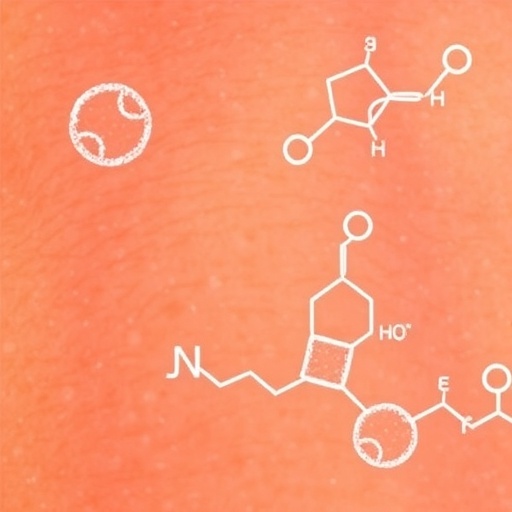A Groundbreaking Cohort Study Reveals Nicotinamide’s Potential to Reduce Skin Cancer Risk
In a compelling new cohort study soon to be published in JAMA Dermatology, researchers have unveiled evidence suggesting that nicotinamide, a vitamin B3 derivative widely available over-the-counter, may significantly decrease the risk of developing skin cancer. This revelation is particularly poignant given the rising global incidence of skin cancer and the ongoing search for effective preventative therapies. Nicotinamide’s role, according to the study, is most pronounced when initiated following a patient’s first diagnosis of skin cancer, highlighting the critical timing of intervention for optimal protection.
Nicotinamide, chemically known as niacinamide, is a form of vitamin B3 essential for vital cellular processes such as DNA repair and cellular energy metabolism. Its pharmacological properties include enhancing the skin’s ability to repair ultraviolet (UV) damage and reducing inflammation, both of which are established contributors to carcinogenesis in the integumentary system. These biochemical mechanisms provide a rational basis for the observed protective effects against skin malignancies in this longitudinal observational analysis.
The study employed rigorous cohort methodologies, following susceptible populations over an extended period to ascertain the incidence of skin cancer among subjects treated with nicotinamide compared to those without such intervention. Cohort studies offer significant strengths in establishing temporal relationships and risk factor associations, which are particularly relevant in preventive medicine and chemoprevention research fields. The longitudinal design provided robust data on medication adherence, dose-response relationships, and stratified outcomes based on clinical characteristics.
Importantly, the research highlights the preventative potential of nicotinamide within the realm of clinical oncology and dermatology, targeting an area marked by previously limited pharmacologic options. Topical and systemic agents for skin cancer prevention have traditionally faced challenges related to efficacy, safety, and accessibility. Nicotinamide’s over-the-counter availability and low toxicity profile make it an attractive candidate for widespread clinical implementation and population health strategies, particularly for high-risk cohorts such as individuals with a history of actinic keratosis or basal cell carcinoma.
From a pathophysiological perspective, skin carcinogenesis involves DNA photolesions primarily caused by UV radiation, leading to mutations in oncogenes and tumor suppressor genes. Nicotinamide enhances the skin cells’ capacity to repair UV-induced DNA damage, thereby reducing mutagenesis and subsequent tumor formation. Moreover, this vitamin B3 derivative modulates cellular inflammation and immunosuppression, both factors known to facilitate the skin’s malignant transformation.
The implications of this study extend beyond dermatology, touching on broader concepts of preventive medicine and public health. Integrating nicotinamide supplementation into standard care protocols could lead to reduced healthcare burdens associated with skin cancer treatments and improved patient quality of life. Effective chemoprevention tools are critical in an era of increasing environmental UV exposure and aging populations, where primary prevention remains a formidable challenge.
Editor in Chief of JAMA Dermatology, Dr. Kanade Shinkai, MD, PhD, recognized the manuscript as a vital contribution to medical literature and selected it as a highlight for journalistic dissemination. Anticipated media packages accompanying the publication will include a detailed podcast and short video, enabling broad accessibility and fostering public engagement around evidence-based skin cancer prevention strategies.
The study’s corresponding author, Dr. Lee Wheless, MD, PhD, can be contacted via email for further inquiries, underscoring a commitment to transparency and scientific dialogue. While the paper comprehensively addresses key aspects such as author contributions, conflicts of interest, and funding support, readers are encouraged to consult the full article upon its release for detailed methodology and data analysis.
The cohort findings align well with emerging evidence from prior randomized controlled trials investigating nicotinamide’s photoprotective properties. However, this research uniquely emphasizes its practical application in real-world clinical settings, demonstrating sustained risk reduction when used after initial skin cancer events—a critical insight for patient-specific preventive care models.
In the context of dermatology, these results may catalyze a paradigm shift in how clinicians approach secondary prevention of skin cancer. Integration of nicotinamide into routine care could complement existing strategies such as sun protection education and regular dermatologic surveillance, enhancing the overall efficacy of skin cancer management protocols.
In conclusion, this seminal study contributes significant knowledge to the field of chemo-prevention and reaffirms the therapeutic promise of vitamin-based interventions in oncology. Its dissemination is expected to influence clinical guidelines and inspire further research into nicotinamide and related compounds for disease prevention.
Subject of Research: Nicotinamide’s impact on skin cancer risk reduction
Article Title: Information not provided
News Publication Date: Information not provided
Web References: Embargoed access link not provided
References: DOI reference – 10.1001/jamadermatol.2025.3238
Image Credits: Information not provided
Keywords: Skin, Cancer, Chemoprevention, Dermatology, Medications, Cohort studies, Vitamin B, Risk factors, Disease prevention, Oncology




